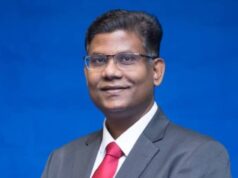PARIS: French President Francois Hollande’s visit to India this week is dominated by trade issues, including a $12-billion deal for Rafale fighter jets, nuclear energy and potential tie-ups for new metro lines.
Hollande will be accompanied by five ministers including Foreign Minister Laurent Fabius and Defence Minister Jean-Yves Le Drian. The chiefs of more than 60 top French companies will also join him for the two-day trip starting Thursday.
Both Indian and French officials have underscored the importance of the trip. India’s ambassador to Paris, Rakesh Sood, stressed that Hollande had chosen the emerging Asian superpower for his first visit outside Europe and French-speaking Africa since taking office.
A French official said the trip was aimed at buttressing the “strategic Indo-French partnership launched 15 years ago.”


“Things are moving very fast and we hope that a contract will be finalised as soon as possible but it will not take place during this visit,” a French diplomatic source said.
India’s air chief NAK Browne said he hoped the deal would be signed by June. “We want it to happen as early as possible for induction soon,” he added.
Dassault chief executive Eric Trappier has confirmed that Indian negotiators had detailed their needs for an additional 63 planes over the initial order for 126 aircraft.
In a welcome stroke of serendipity for Paris, the planes in question have been showcased in the French military intervention in Mali.
The rapid air strikes on Islamists there have played a vital role in a whirlwind offensive to drive them from the west African nation’s vast northern territory.
Hollande will be followed days later in Delhi by British Prime Minister David Cameron, who has lobbied on behalf of the Eurofighter, a rival jet made by a partly British consortium which is ready to step in if Dassault fails.
Under the proposed Rafale deal, the first 18 aircraft are to be made in France with the remainder to be produced under licence by Hindustan Aeronautics Limited (HAL), the state-run Indian aerospace behemoth.
Another important project that will dominate the trip is a contract for Areva to construct a nuclear power station in the western coastal state of Maharashtra. It has run into stiff opposition from environmentalists.
The project, signed in December 2010, is for two European pressurised reactors (EPR) at Jaitapur 400 kilometres (250 miles) south of Mumbai, with an option for four more reactors.
But following the Fukushima nuclear disaster in Japan, many such projects around the world were frozen, delayed or abandoned and negotiations with India slowed down.
Local opposition to the project has focused mainly on the risk of seismic activity in the area.
France is one of the largest suppliers of nuclear fuel to India and is eyeing its vast market for energy — both nuclear and renewable — acknowledging that the current trade level is a fraction of the potential.
There is also enormous French interest in urban planning. Alstom is hoping to clinch a deal to construct a new stretch of the underground train network in the southern city of Bangalore, the hub of India’s IT industry.
The business chiefs accompanying Hollande reflect the enormous interest of French companies in the country’s booming market, from luxury goods maker LVMH to aerospace giant EADS, which owns plane maker Airbus.
But casting a shadow over the visit is a demand by the Indian wife of a French consular official for a meeting with Hollande. Her husband was charged in June 2012 with raping their three-year-old daughter.
Suja Jones Mazurier’s call came after lawyers representing her husband, Pascal Mazurier, were received at Hollande’s Elysee Palace.
During his visit, Hollande will hold talks with Indian Prime Minister Manmohan Singh, meet economist and Nobel laureate Amartya Sen and award him with the Legion d’honneur.
He will also address Indian industrialists and visit a research centre set up by French cement maker Lafarge.








